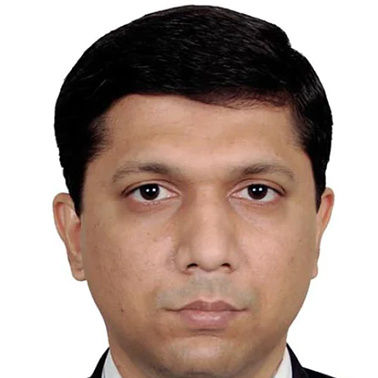Understanding Tobacco Smoking and Health Effects
Explore the harmful health effects of tobacco smoking, including how it impacts your lungs, heart, and overall well-being. Learn why quitting is essential, tips to quit smoking and healthy alternatives.

Written by Dr. Mohammed Kamran
Reviewed by Dr. Rohinipriyanka Pondugula MBBS
Last updated on 13th Jan, 2026

Introduction
Tobacco smoking is a widespread habit with serious health consequences. While many people smoke for relaxation or stress relief, the long-term effects on the body can be devastating. If you or someone you know smokes, understanding its impact can help in making informed decisions about quitting and improving overall health.
What Happens When You Smoke?
When you inhale tobacco smoke, thousands of harmful chemicals enter your lungs and bloodstream. The most dangerous ones include:
Nicotine – Highly addictive, making quitting difficult.
Tar – Sticks to the lungs, causing damage over time.
Carbon Monoxide – Reduces oxygen in the blood, straining the heart.
Carcinogens – Cancer-causing agents like benzene and formaldehyde.
These chemicals affect nearly every organ in the body, leading to both short-term and long-term health problems.
Consult a Top General Physician for the best advice
Short-Term Effects of Smoking
Even occasional smoking can cause immediate health issues, such as:
Bad breath and yellow teeth
Reduced sense of taste and smell
Shortness of breath and coughing
Increased heart rate and blood pressure
Weakened immune system (more prone to infections)
Long-Term Health Risks
Smoking over time significantly increases the risk of life-threatening diseases, including:
1. Lung Diseases
Chronic Obstructive Pulmonary Disease (COPD) – A progressive lung disease causing breathing difficulties.
Lung Cancer – One of the most common and deadly cancers linked to smoking.
2. Heart Disease and Stroke
Smoking damages blood vessels, leading to:
High blood pressure
Increased risk of heart attacks
Higher chances of stroke due to blocked arteries
3. Cancer (Beyond the Lungs)
Smoking is linked to cancers of the:
Mouth, throat, and esophagus
Bladder, kidney, and pancreas
Stomach and liver
4. Weakened Immune System
Smokers get sick more often and take longer to recover from illnesses.
5. Reproductive Health Issues
In Men: Lower sperm count and erectile dysfunction.
In Women: Fertility problems, pregnancy complications, and higher risk of cervical cancer.
Secondhand Smoke: A Danger to Others
Even if you don’t smoke, being around smokers (secondhand smoke) can harm your health, especially for children and pregnant women. It increases the risk of:
Respiratory infections (like bronchitis and pneumonia)
Asthma attacks in children
Sudden Infant Death Syndrome (SIDS)
Benefits of Quitting Smoking
The good news is that quitting smoking at any age can reverse some damage and improve health. Here’s how your body recovers:
Within 20 minutes: Blood pressure and heart rate drop.
Within 12 hours: Carbon monoxide levels normalize.
Within 2 weeks to 3 months: Lung function improves, and circulation gets better.
Within 1 year: Risk of heart disease drops by half.
Within 5 years: Stroke risk reduces to that of a non-smoker.
Within 10 years: Lung cancer risk drops significantly.
Tips to Quit Smoking Successfully
Quitting is challenging, but with the right approach, it’s possible. Here are some helpful strategies:
1. Set a Quit Date
Choose a specific day to stop smoking and mentally prepare for it.
2. Seek Support
Tell friends and family for encouragement.
Join support groups or counseling programs.
3. Nicotine Replacement Therapy (NRT)
Use patches, gums, or lozenges to ease withdrawal symptoms.
4. Prescription Medications
Consult a doctor for medications that reduce cravings.
5. Avoid Triggers
Stay away from situations where you usually smoke (like drinking alcohol or coffee).
6. Stay Active
Exercise helps reduce cravings and stress.
7. Try Relaxation Techniques
Deep breathing, meditation, or yoga can help manage withdrawal stress.
Healthy Alternatives to Smoking
Instead of reaching for a cigarette, try:
Chewing sugar-free gum
Snacking on nuts or fruits
Drinking water or herbal tea
Keeping hands busy with a stress ball or fidget spinner
When to See a Doctor
If you’re struggling to quit or experiencing severe withdrawal symptoms (like extreme mood swings or depression), consult a healthcare provider. They can guide you with personalized treatment options.
Conclusion
Quitting smoking is one of the best decisions you can make for your health. Every smoke-free day brings you closer to a healthier, longer life.
Consult a Top General Physician for the best advice
Consult a Top General Physician for the best advice

Dr. Sandhya Chandel
General Physician/ Internal Medicine Specialist
16 Years • MBBS, MD (Int. Med.), IDCCM
Bilaspur
Apollo Hospitals Seepat Road, Bilaspur
(125+ Patients)

Dr. Anand Misra
General Physician/ Internal Medicine Specialist
14 Years • MBBS, DNB
Mumbai
Apollo Hospitals CBD Belapur, Mumbai

Dr. Vijay Kumar Shrivas
General Physician/ Internal Medicine Specialist
20 Years • MBBS, DNB - General Medicine Internal Medicine
Bilaspur
Apollo Hospitals Seepat Road, Bilaspur
(75+ Patients)

Dr. Aakash Garg
Gastroenterology/gi Medicine Specialist
12 Years • MBBS, DNB (Medicine), DrNB (Gastroentrology).
Bilaspur
Apollo Hospitals Seepat Road, Bilaspur
(150+ Patients)

Dr. Maharshi Desai
General Physician/ Internal Medicine Specialist
14 Years • MBBS, MD (Int. Med.), FNB (Critical Care)
Ahmedabad
Apollo Hospitals Gandhinagar, Ahmedabad
(50+ Patients)


.webp)

